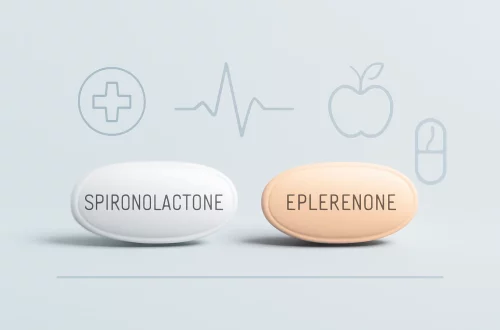
Understanding the Cost of a Vet Farm Call: What to Expect
When your beloved pet is unwell or requires routine care, the thought of taking them to a veterinary clinic can be daunting. For many pet owners, the convenience of a veterinarian making a house call is not just a luxury but a necessity. This growing trend allows pets to receive medical attention in familiar surroundings, minimizing their stress and anxiety. However, while the comfort of home is a significant advantage, the costs associated with a vet farm call can vary widely and may come as a surprise to many.
Understanding what factors influence the pricing of these visits is crucial for pet owners. Various elements contribute to the overall cost, including the veterinarian’s travel distance, the complexity of the services provided, and the regional cost of living. Furthermore, the type of pet and its specific health needs can also play a significant role in determining the final bill. As pet healthcare continues to evolve, knowing what to expect during a vet farm call can empower pet owners to make informed decisions about their furry companions’ health and well-being.
Factors Influencing Vet Farm Call Costs
When considering a vet farm call, several factors come into play that can influence the overall cost. One of the most significant factors is the distance the veterinarian must travel to reach your home. Typically, the further the vet has to travel, the higher the associated travel fees. This is particularly true in rural areas where distances can be considerable. Some veterinarians may have a set travel radius, and if you live outside that radius, additional charges may apply.
Another essential factor is the type of services being rendered during the visit. A routine check-up will generally be less expensive than a call for an emergency situation or specialized treatment. For example, vaccinations, wellness exams, and minor procedures may have a flat fee, while surgical interventions or extensive diagnostic tests will significantly increase the cost. Additionally, if the veterinarian needs to bring specialized equipment for diagnostics or treatment, this can further elevate the cost of the visit.
The type of pet also influences the price. For example, care for larger animals, such as horses or cattle, often requires more time and specialized equipment, resulting in higher fees compared to smaller pets like cats and dogs. Furthermore, the age and health condition of the pet can affect the complexity of the visit. Older pets or those with pre-existing conditions may require more thorough examinations and follow-up care, which can contribute to increased costs.
Lastly, regional differences in the cost of living can affect veterinary fees. Urban areas often have higher vet service rates due to increased operational costs, while rural areas may offer more competitive pricing. Understanding these factors can help pet owners anticipate the potential expenses associated with a vet farm call.
Understanding the Breakdown of Costs
To better prepare for the potential expenses of a vet farm call, it’s essential to understand the breakdown of costs involved. Most veterinary practices will provide a detailed invoice that outlines all charges, making it easier for pet owners to see where their money is going. The primary components include the consultation fee, travel fee, and any additional services or treatments provided during the visit.
The consultation fee is typically the base charge for the veterinarian’s time and expertise. This fee can vary significantly between clinics and may depend on the veterinarian’s qualifications and experience. Some practices may offer a flat rate for home visits, while others may charge based on the length of the consultation.
The travel fee covers the veterinarian’s transportation costs and time spent traveling to and from your location. This fee can vary based on distance and may include additional charges if the veterinarian has to navigate difficult terrain or traffic congestion. It’s essential for pet owners to clarify these fees upfront when scheduling a home visit to avoid any surprises.
Additional services performed during the visit will also contribute to the overall cost. For instance, if your pet requires vaccinations, blood tests, or other procedures, these will be itemized separately on the invoice. Some veterinarians may offer package deals for routine visits that include several services at a reduced rate, which can be a cost-effective option for pet owners.
Understanding the breakdown of costs can help pet owners budget for veterinary care and make informed decisions about their pets’ health needs. It also fosters transparency between the veterinarian and the client, ensuring that everyone is on the same page regarding expenses.
How to Prepare for a Vet Farm Call
Preparing for a vet farm call can help ensure that the visit goes smoothly and that your pet receives the best possible care. Before the veterinarian arrives, there are several steps you can take to facilitate the process.
First, gather any relevant medical history for your pet, including vaccination records, previous illnesses, and medications they are currently taking. Having this information readily available can assist the veterinarian in making informed decisions about your pet’s care. If your pet has any specific behavioral issues or concerns, be sure to communicate these as well.
Next, ensure that the area where the veterinarian will be examining your pet is clean and free of distractions. This helps create a calm environment, which is particularly important for pets that may already be feeling anxious. If possible, designate a quiet space where the veterinarian can comfortably examine your pet without interruptions.
It’s also a good idea to have a list of questions or concerns prepared ahead of time. Whether you’re curious about your pet’s diet, behavior, or potential health issues, having a list can help you make the most of the consultation. This proactive approach can lead to a more productive discussion and better outcomes for your pet.
Lastly, be prepared for the possibility of follow-up care or additional visits. Depending on the findings during the home visit, the veterinarian may recommend further testing, treatment, or referrals to specialists. Understanding this ahead of time can help you plan both logistically and financially for your pet’s ongoing care.
Alternatives to Vet Farm Calls
While vet farm calls offer convenience and comfort, they may not always be the best option for every situation. Exploring alternative options can provide pet owners with a broader perspective on managing their pets’ healthcare needs.
One common alternative is visiting a traditional veterinary clinic. While this option may require transportation, clinics typically have more extensive resources and equipment available for diagnostics and treatment. Depending on the location, some clinics may offer extended hours, making it easier to schedule appointments that fit your busy lifestyle.
Another option is to explore telemedicine services. Many veterinarians now offer virtual consultations, where pet owners can discuss their concerns via video calls. This option can be particularly beneficial for minor health issues or follow-up questions after a recent visit. However, it is essential to note that telemedicine may not be suitable for all situations, especially if hands-on examination or treatment is necessary.
Pet owners can also consider reaching out to local animal shelters or community organizations that may offer low-cost vaccination clinics or wellness checks. These programs can provide essential services at a fraction of the cost and are often designed to support pet owners who may be struggling financially.
In summary, while vet farm calls provide a unique and personalized approach to pet care, exploring alternatives can help owners make informed choices that best suit their needs and their pets’ health.
*Disclaimer: This article is for informational purposes only and should not be considered medical advice. For any health concerns regarding your pet, please consult with a qualified veterinarian.*




